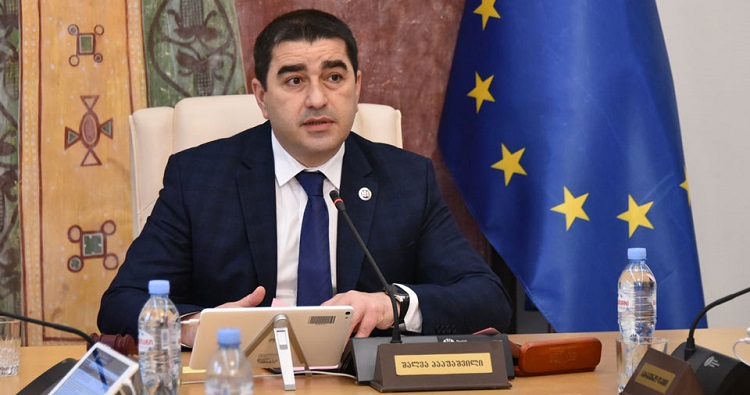Parliament Speaker: bilateral sanctions on Russia “may lead to escalation”

The Parliament official called the position of the domestic opposition on the subject “absolutely incomprehensible”. Photo: Parliament of Georgia
Georgian Parliament Speaker Shalva Papuashvili on Thursday said urging the country’s Government to impose bilateral sanctions on Russia for its aggression in Ukraine was meant “actually saying that Georgia must risk direct military confrontation with Russia”.
Papuashvili was commenting after the Russian Government on Wednesday lifted its four-year-long ban on direct flights with Georgia, which caused concerns in some sections of the domestic public and saw the European Commission urge the Georgian Government to join its sanctions on the Russian airline sector.
The Parliament official called the position of the domestic opposition on the subject “absolutely incomprehensible”.
[This] situation is about a country X that imposed sanctions against Georgia [in 2019], punished Georgian citizens, and [now] these sanctions have been lifted. How can it be possible to [use the subject to] create panic, create scandals and demand Russia sanction Georgia again?”, Papuashvili said.
“On the contrary, all existing sanctions against Georgia must be lifted, because all sanctions imposed against Georgia and its citizens are unjust, and it is important that these sanctions be lifted as soon as possible”, the Parliament official continued.
Papuashvili stressed the Georgian authorities were ensuring the sanctions imposed by the European Union against Russia were respected and that the country did not become a territory where they would be bypassed.
Two principles are the main ones: Georgia ensures that our territories are not used to circumvent sanctions, and Georgia does not impose bilateral sanctions against Russia, as this may lead to an escalation of the situation, and at the end of the escalation, there may be a direct military conflict that is not in the interests of the Georgian citizens”, he concluded.
 Tweet
Tweet  Share
Share